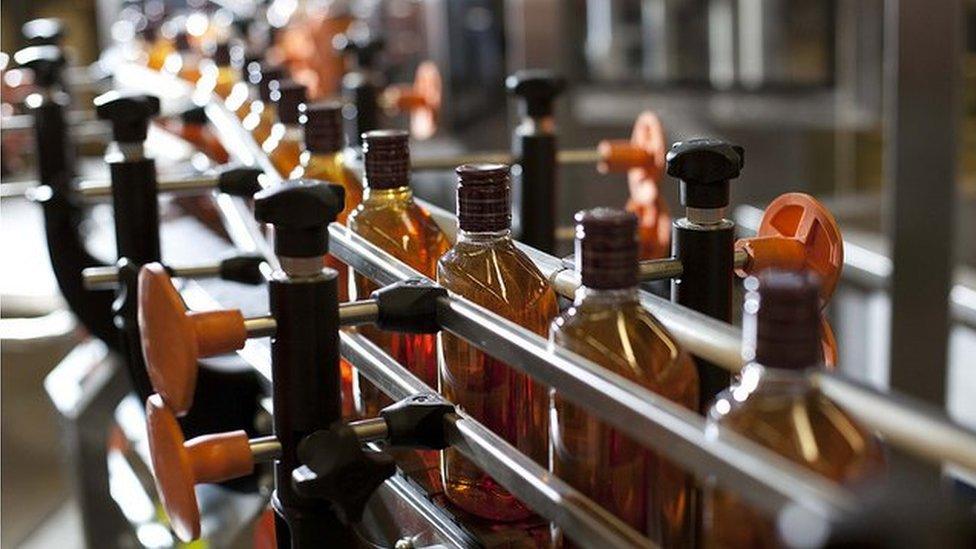Scotch whisky industry commits to reduced energy targets
- Published

The Scotch whisky industry is committing to new targets for reduced energy use and less environmental impact.
The second such strategy, which is considered unusual for a whole industry, updates the one published seven years ago.
Since then, energy use from non-fossil fuels has risen from 3% to 17%.
The new target is to reach 40% by 2030, and on track to get up to 80% by 2050.
The measure of efficient energy use is the emissions per unit used. That has fallen 13% since 2008. But as whisky production has risen significantly, total emissions have fallen by only 1%.
Some 33% of whisky packaging, including bottles and boxes, is now made from recycled materials. The latest target is to get that to 40% by the end of this decade, with fully-recyclable packaging.
One target on which bottlers have made little progress is the reduction of the weight of packaging. The target is to get that down by 10% by 2020, but it has only fallen 1% in the past five years.
Sustainable forestry
The Scotch Whisky Association (SWA) is pledging to use distilling water 10% more efficiently. Net water use has fallen 14% between 2008 and 2014.
The industry also plans to improve the sourcing of wood for casks from sustainable forestry, and to set minimum standards in partnership with grain farmers.
Julie Hesketh-Laird, deputy chief executive of the Scotch Whisky Association, claimed the "refresh" of the industry's environmental strategy was "a clear sign of bold industry intentions on sustainability", and was the only one in Scotland covering an entire industry.
"Sound environmental management is an industry priority and goes hand in hand with business growth," she said, adding that strong support from governments and the industry's supply chains will be needed to hit the targets.
Roseanna Cunningham, the Scottish environment secretary, said: "Making good whisky relies on quality ingredients and these in turn depend on our environment.
"It is heartening to see recognition of this in the SWA's refreshed strategy, which is an excellent example of positive interaction between our natural environment and the economy."
- Published16 September 2016

- Published9 May 2016
